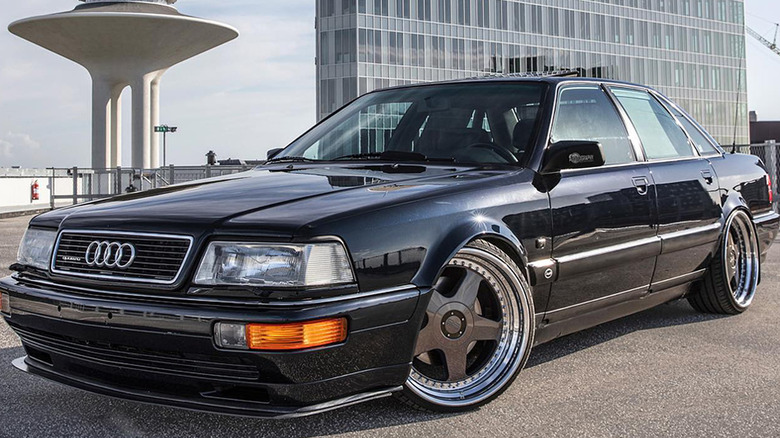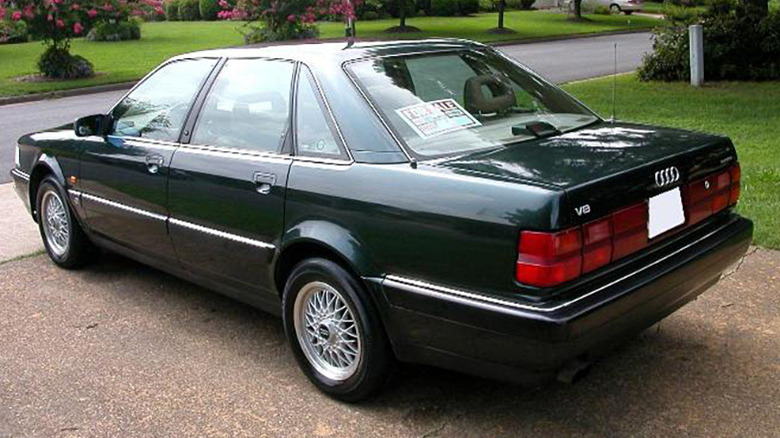A Look Back At The Innovation In Audi's Iconic V8
All-wheel drive vehicles are commonplace and even quite affordable these days, but that hasn't always been the case. Until 1968, when Jensen built the first of about 300 AWD Interceptor models, and Subaru began mass-producing AWD cars a few years later, such drivetrains were the domain of off-road vehicle manufacturers like Jeep and International Harvester.
In the late '80s, however, Audi noticed Subaru's steadily climbing sales figures and decided to make a stronger effort to push the Quattro system that had already proven to be a success on the World Rally Championship (WRC) circuit. At the time, Audi did not have the reputation of a luxury brand it currently enjoys, but the V8 sedan it introduced in 1988 went a long way toward establishing that standard.
Audi used the platform from the 100 and 200 sedans and put a 3.6-liter V8 engine under the hood of the V8, mating it to one of three transmissions: five or six-speed manuals or a four-speed automatic. It was the first time Audi offered the Quattro system with an automatic transmission. Audi targeted Mercedes S-Class and BMW 7 series customers with heated power leather seats, wood trim, and an eight-speaker Bose audio system. The V8 also had cutting-edge technology like anti-lock brakes, airbags, and automatic climate control.
The V8 did not sell particularly well
The 3.6-liter V8 produced 250 horsepower and 251 lb-ft of torque, but in 1992, Audi upgraded the engine to a 4.2-liter version that generated 276 horsepower and 295 lb-ft of torque. Most of the V8s produced were four-door sedans, but Audi CEO Ferdinand Piech had a station wagon version built for his wife that was later exhibited at the Audi Forum in Ingolstadt. The V8 was expensive (the 1991 model retailed for just over $50,000) and did not sell particularly well – sales peaked at less than 2,00 units in 1990 and dropped to just 77 cars by 1994. Audi sold fewer than 4,000 V8s between 1989 and 1994, when the model was replaced by the A8.
The V8 did help establish Audi's reputation as a maker of premium automobiles, however. It was also a racing champion, winning the 1990 and 1991 DTM Group A titles for Schmidt Motorsport and Audi Zentrum Reutlingen.
[Featured Image by Jagvar via Wikimedia Commons | Cropped and scaled | Public domain ]

